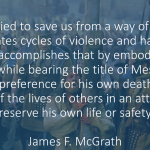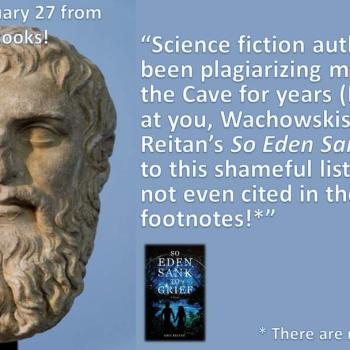This call for submissions includes elements such as Biblical interpretation among the topics that might be covered, and so for those who share my interest in Biblical studies, religion, and science fiction – but who perhaps have focused more broadly on Cameron’s films than I have – this should be of interest…
A Critical Companion to James Cameron
deadline for submissions:April 1, 2017full name / name of organization:Dr. Antonio Sanna, Prof. Adam Barkmancontact email:
A Critical Companion to James Cameron
Edited by Adam Barkman and Antonio Sanna
Canadian director, producer and screenwriter James Cameron is certainly one of the most popular figures of contemporary Hollywood. His oeuvre includes mainly blockbuster films that had a great success all over the world, such as Terminator (1984), Aliens (1986), The Abyss (1989), Titanic (1997) and Avatar (2009), but he is also renowned as an inventor of sophisticated underwater machinery. His distinctive touch is his meticulous attention to realistic details (whether in historical or futuristic settings) and his preference for spectacular images produced by the most up-to-date technologies available. Although all of his achievements have offered (and still offer) an incredibly fertile ground for critical examination, analysis and discussion, scholarship on Cameron has never proliferated.
This anthology will explore Cameron’s multi-medial oeuvre from multidisciplinary perspectives. This volume seeks previously-unpublished essays that explore the director’s heterogeneous career, including his directorial debut with the co-directed Piranha 2: The Spawning (1981), his two documentaries Ghosts of the Abyss (2003) and Aliens of the Deep (2005), and, of course, his blockbusters. We are particularly interested in interdisciplinary approaches to the subject that can illuminate the diverse facets of the director’s work and his visual style. A full proposal will be submitted to a publisher (with whom we are already in contact about this project) as soon as we have selected the list of chapters. The previous volume we co-edited together—A Critical Companion to Tim Burton—was contracted with Lexington Press, which makes use of peer-reviewing. Our relationship with Lexington is very good and we expect to sign with them.
There are several themes worth exploring when analyzing Cameron’s works, utilizing any number of theoretical frameworks of your choosing. We request the chapters to be based on formal, academic analysis. Contributions may include (but are not limited to) the following topics:
Cameron and the visual arts
Cameron and fairy tales
Gender and queer readings
Cameron and philosophy
Representations of mothers
Utopias and dystopias
Exploration of dreams and the subconscious
Fascination with machines and ecocriticism
Alienation and misperception, conformity/nonconformity
Fear of the Other
The problem of evil
Postcolonial readings
Biblical interpretations
Cultural studies and popular culture
Class consciousness
Technologies of communication
Romantic love through destruction
Creativity and representations of the artist
Special effects and their evolution
Music in Cameron’s films (Brad Fiedel, James Horner and Alan Silvestri)
The meaning and significance of colors
Hubris and technology
James Cameron in/and translation
Fan practice and fan communities
Technology and the Environment
Science and mystery
The anthology will be organized into thematic sections around these topics and others that emerge from submissions. We are open to works that focus on other topics as well and authors interested in pursuing other related lines of inquiry. Feel free to contact the editors with any questions you may have about the project and please share this announcement with colleagues whose work aligns with the focus of this volume.
Submit a 300-500 word abstract of your proposed chapter contribution, a brief CV and complete contact information to Prof. Adam Barkman ([email protected]) and Dr. Antonio Sanna ([email protected]) by 1 April, 2015. Full chapters of 4000-6000 words would be due upon signing a contract with a publisher. Note: all full chapters submitted will be included subject to review.













